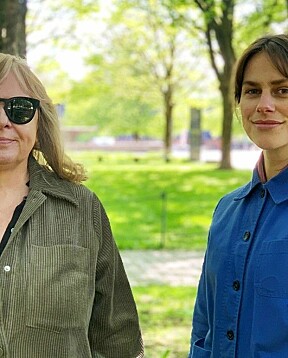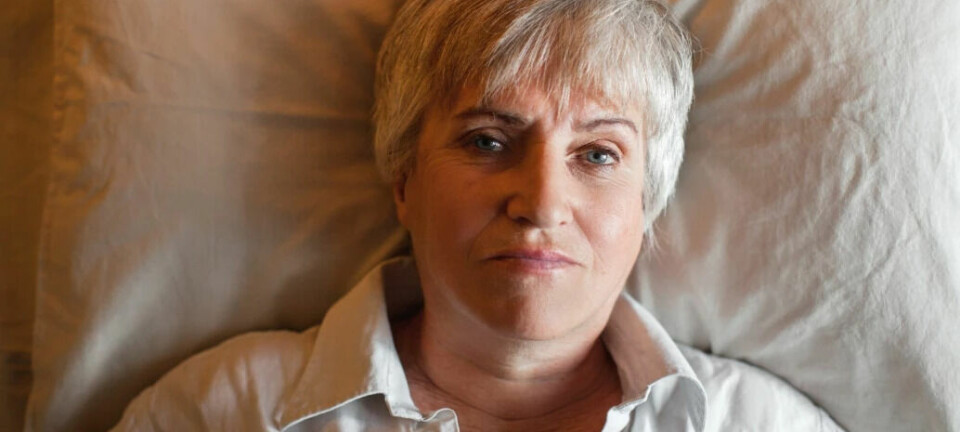
It can be physically painful to earn less than your neighbour
Earning less than others can physically hurt, according to a recent study. Those with above average incomes experience less physical pain than others, regardless of whether they live in a wealthy or poor country.
Physical pain is widespread and a significant challenge for healthcare systems. A recent large-scale study also shows a connection between pain and income.
Those who earn less than their peers more frequently report experiencing bodily pain compared to those who earn more.
This finding comes from a recent study based on surveys conducted worldwide.
The link remains the same regardless of whether you live in a wealthy or poor country.
The study was published in the journal Social Psychological and Personality Science.
Can affect both mental and physical health
It is not surprising, in and of itself, that income is related to health, according to Jan Olav Christensen. He is a senior researcher at STAMI, the National Institute of Occupational Health in Norway.
“Those who earn the least and have the lowest socioeconomic status have the worst prospects. It can affect both mental and physical health in many ways,” he writes in an email to sciencenorway.no.
However, the most important aspect of these findings is the significance of income inequality rather than the income level itself, he emphasises.
Christensen works in the field of occupational health psychology and physiology at STAMI.
Social comparison is the cause
Previous research has also shown that evaluating one’s own situation in comparison to other relevant people can have an impact on overall health and well-being.
But the connection with physical pain, as shown in this study, is quite new, according to Christensen.
“The study shows that having relatively low income is associated with physical pain regardless of how much you earn. This suggests that what drives this pain effect is not earning a low income per se, but earning less than those you compare yourself with,” he writes.
Poorer physical condition and satisfaction
Absolute low income is associated with lower life satisfaction. It is linked to increased anxiety and depression.
Absolute low income is also associated with self-reported poorer physical health, physical functioning, and pain, as well as an increased risk of obesity, according to previous research.
It is therefore a myth that the poor are happier than others, or that money does not determine one’s level of satisfaction.
Envy and a sense of unfairness
The connection between psychological and social factors and pain is well-documented in previous research.
Mental health and physical pain are closely related, according to Christensen.
“However, the explanation is still unclear. It is likely due to the involvement of various mechanisms,” the STAMI researcher writes.
Those who earn less than people around them may experience negative emotions when they realise where they stand on the income scale.
Feelings such as envy and a sense of unfairness can arise.
It is also possible that those with lower income are, in some cases, victims of discrimination in one way or another, researchers believe.
This has been linked to chronic physical pain in previous research.
Anxiety, depression, and hopelessness
If you earn less than those you consider natural to compare yourself to, it could trigger emotional responses.
Emotional responses such as anxiety, depression, and a sense of hopelessness may be possible explanations, according to researchers.
Hopelessness and frustration about being unable to move up in society can lead to anger and stress.
This, in turn, can affect a person's pain threshold, researchers believe.
Social exclusion
Residents of poor countries did not experience more pain than those living in wealthy countries. Being poor does not lead to more pain if everyone around you is also poor.
“This reinforces the assumption that social comparison is causing these results,” Christensen writes.
Studies have shown, for example, that social exclusion is associated with physical pain.
“Part of the explanation may lie in the physiological systems associated with processing physical and emotional pain overlapping,” he writes.
Alternatively, long-term psychological stress and overactivation may disrupt physiological processes relevant to pain, Christensen explains.
The least surplus of energy?
In studies based on observation and self-reporting, it is often possible to find alternative explanations.
“You can imagine that individuals who, for various reasons, experience the most pain are also the ones with the least surplus of energy to pursue a career on an equal footing with others,” Christensen points out.
However, the authors have controlled for physical health, so such an explanation may not be the most likely, the STAMI researcher believes.
Nevertheless, it is conceivable that psychological problems can lead to both lower income growth and pain.
Pain associated with occupation
Pain is one of the main reasons people visit emergency departments.
Physical pain has increased dramatically in recent decades.
In Norway, nearly seven out of ten individuals report experiencing musculoskeletal pain, i.e., pain in their muscles and bones. It is strongly related to occupation, as shown in a survey by STAMI.
Hairdressers and cleaners experience the most pain, while pilots, top executives, and teachers report the least pain.
Pain affects both leisure time and productivity in the workplace. It increases healthcare costs and poses a significant challenge to global public health.
Pain also plays a key role in suicide, alcohol abuse, and drug abuse.
Therefore, it is important to understand the consequences of pain and how it arises, researchers believe.
———
Translated by Alette Bjordal Gjellesvik.
Read the Norwegian version of this article on forskning.no
References:
Macchia et al. Having Less Than Others is Physically Painful: Income Rank and Pain Around the World, Social Psychological and Personality Science, 2023. DOI: 10.1177/19485506231167928
Muskel- og skjelettsmerter (Musculoskeletal pain), STAMI, 2019.





































